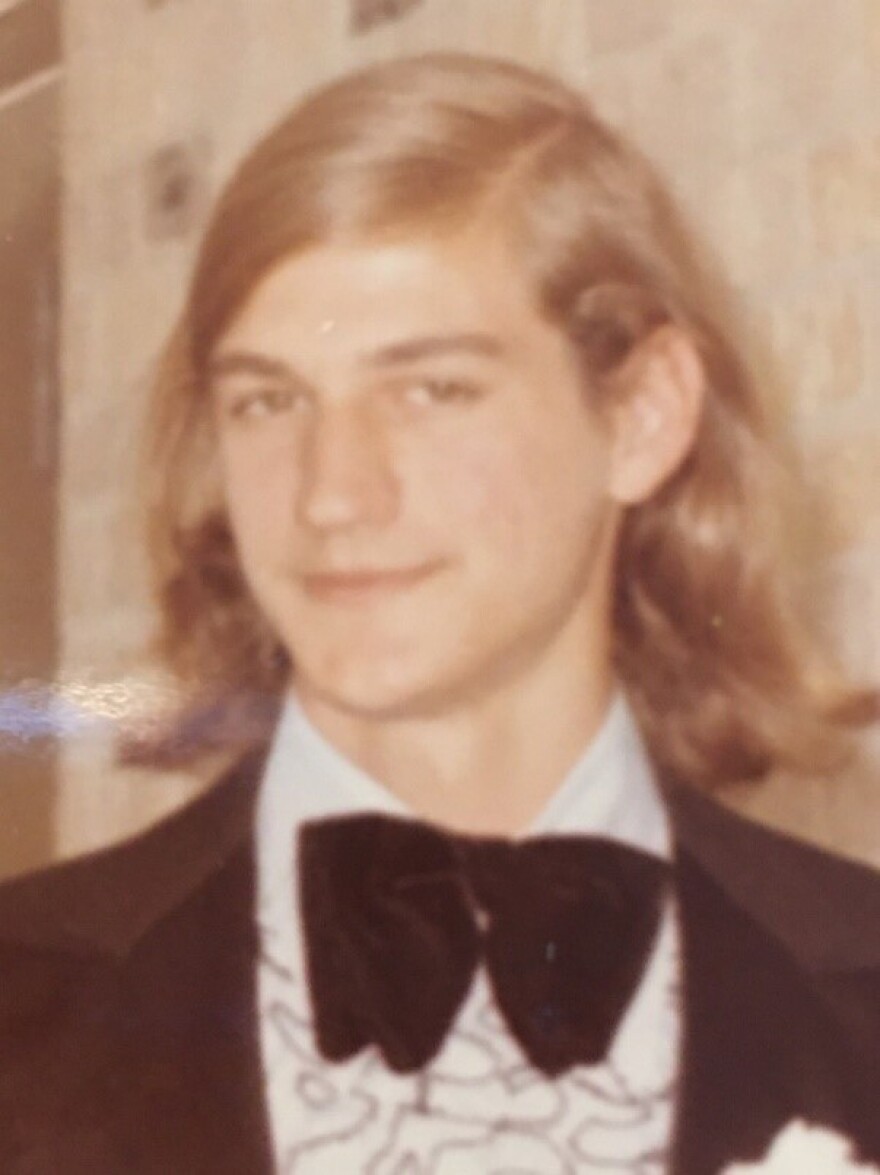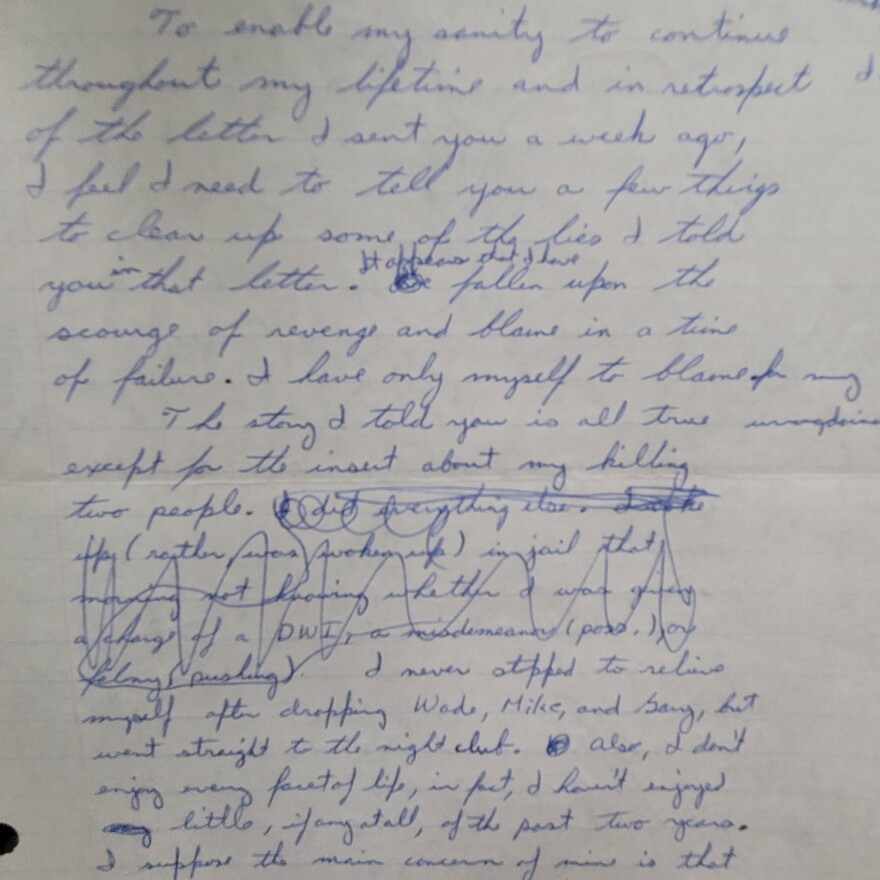Amanda Vargo Wattecamps was about 7 years old when she first learned of her uncle Brian's existence.
She was at her grandparents' house in Houston, looking at an old family photo: her grandparents and five children.
"I remember counting the children in the picture and identifying each one of them," she said. "And then there was this guy that I didn't know, and I had never met before."
That fifth child was Brian.
The photo started her on a search for him, a UT student who disappeared sometime around March 9, 1976.
At that age, there wasn't much she could do. Again, she was only 7.
"It was also like – 'Let's not upset anyone. Let's not talk about this. Basically, everyone's dealt with this already. Let's not wake the beast,'" she said.
But decades after Brian's disappearance, Amanda is still trying to get into his head. She wants to figure out what might have happened that led to him simply vanishing. So she asked this question for ATXplained:
"What was the social scene at UT like in the early seventies — maybe mid-, early seventies?"
I don't know that we can answer this question with any specificity — at least not without the help of those of you who were around Austin in the '70s. (If you were and you can help answer Amanda's very specific question, please get in touch.) But if the goal is to solve the mystery of what happened to Brian Vargo, it helps to know what Amanda does know.
Brian goes to college
This story is based on what Amanda has found from talking to family and her uncle's friends, reading his letters and scraps that remained — all the parts of the life Brian Vargo left behind 47 years ago.

Brian grew up in Houston. He was the second youngest of five children born to his parents, Rita and Frank. He had plenty of friends. He was good at math. The family had a pool table, and he'd gotten pretty good.
In 1974, he moved to Austin to go to UT to study engineering. Many of his friends from Westchester High School in Houston also went to UT.
"I met him in junior high in the seventh grade," says Ron West, who grew up in the same neighborhood as Brian. "We went to the same junior high, rode the same bus to school."
A lot of their friends lived in the same UT dorm freshman year – The Castilian, right off the Drag. West recalls some of the mischief they got up to, like the time they pried open a door to hang out on the roof of the 22-story dorm. Or when they dangled a firehose out the window of a 13th-floor room and climbed to the parking garage several floors below.
"We used to be wild and crazy, but that would probably get you kicked out of college now," West says. "But back then, in the '70s, you could do pretty much anything that wasn't overtly illegal and they would leave you alone."
Shenanigans aside, Brian made honor roll in the spring of 1975. It seemed like he had a pretty normal time during his freshman year at college. But as the next school year approached, things began to change.
Brian's disappearance
Back home in Houston for the summer, Brian got pulled over by police early one morning. They said he was driving on the wrong side of the road and they found marijuana in his car. He was arrested.
"I think it was a pivotal moment because I think he carried shame about it," Amanda says.
Things seemed to go further down hill for Brian after that. He writes in letters and journals about losing interest in everything. Reading what he wrote out of context, without being able to see the full picture, two possibilities come to my mind to explain what was going on in his head at the time.
One: He's having the usual college student drama and angst. He's a young kid struggling to figure out who he is and his place in the world.
Or two: He's going through some kind of crisis. He never writes directly about his problems – at least not in what Amanda has found. He makes veiled references to secrets and telling people the truth about something.

But one thing is on paper. By the fall of 1975, he was not doing well in school. His grades had fallen sharply.
On March 9, 1976, Brian dropped out of school, according to a document from the registrar's office. None of his friends knew that until Amanda contacted them recently.
Spring break started around the same time. Brian said he was getting out of town by himself.
"He told his friends that he was going to go on a self-guided tour of Colorado," Amanda says. "[He] didn't say where, specifically, he was going or anything. He was just gonna go for spring break."
West says he remembers being in shock.
"'What? He hopped in his car or he's hitchhiking to Colorado?" he says. "What's in Colorado? Do you know somebody in Colorado? Why is he going to Colorado?"
West says Brian was acting totally normal until he left.
It's unclear if he ever got to Colorado – or whether he even intended to go. But there's some evidence he did. The story goes that his car broke down in Colorado and that he decided to sell the car rather than fix it. Then he showed up at his parents' house.
"He came back to Houston, looking for the title, so that he could sell [the car]. And my grandmother says she remembers him, like, rummaging through papers, like, in a hurry," Amanda says.
He might have found the title or he might not have. But either way, he asked his mother to drop him at the bus station outside Houston, presumably to go sell the car.
"My grandmother dropped him off at the Katy bus station," Amanda says. "That was the last time she saw him."
It was the last time anyone can recall seeing him.
Brian's wallet was later found at his apartment on Tinnin Ford Road, just off East Riverside. His car was never found.
There are no records of a missing person report being filed with police in Houston or Austin, though Brian's mother insists she did file one. Amanda filed a report with the Austin Police Department two years ago. When I asked for an update this week, APD simply told me, "the case is still open."

A hole in the family
It's hard not to wonder why Amanda keeps looking for an uncle she's never known. She says she feels close to him, even if it's a version of him frozen in time as a 20 year-old kid.
"There's a hole in my family. I would say that every year it seems to get a little smaller," Amanda says.
When asked what she thinks happened to him, Amanda says it changes from day to day.
"There are so many things that say — there's just no trace of him. There's been no bones found, no unidentified bodies. And that right there is astonishing to me, in all these years," she says.
"Do you think he's alive?" I press.
"I don't want to say 'yes,'" she says. "I don't want to have that hope. If I say yes, then it hurts people in my family, in a way of — 'Where have you been for the past 46 years? Why didn't you call?'"
Brian Vargo would be 67 years old now. We might never know what happened to him, so much of this story is clouded by time. But if you have any information about his disappearance or anything that might help Amanda and her family understand what happened, please get in touch.















